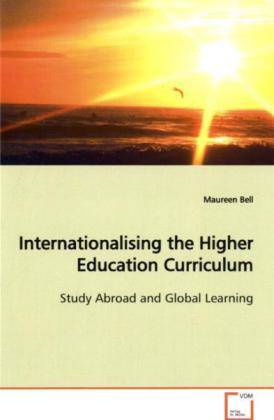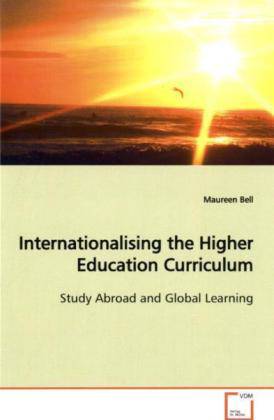
Je cadeautjes zeker op tijd in huis hebben voor de feestdagen? Kom langs in onze winkels en vind het perfecte geschenk!
- Afhalen na 1 uur in een winkel met voorraad
- Gratis thuislevering in België vanaf € 30
- Ruim aanbod met 7 miljoen producten
Je cadeautjes zeker op tijd in huis hebben voor de feestdagen? Kom langs in onze winkels en vind het perfecte geschenk!
- Afhalen na 1 uur in een winkel met voorraad
- Gratis thuislevering in België vanaf € 30
- Ruim aanbod met 7 miljoen producten
Zoeken
Internationalising the Higher Education Curriculum
Study Abroad and Global Learning
Maureen Bell
Paperback | Engels
€ 77,95
+ 155 punten
Omschrijving
Internationalisation of the curriculum has emerged
in universities as an educational response to
globalisation and increased international student
mobility. Many universities now seek to produce
graduates with the perspectives and capabilities to
function as global professionals. Yet little is
known about the ways in which academics develop
international approaches to teaching or how
university students develop international
perspectives and capabilities. This book provides an
analysis of three programs involving study abroad
and global learning at universities in Australia and
Singapore. Issues that emerge as significant include
the importance of appropriate theoretical
frameworks, the alignment of assessment policy and
practice across partner institutions, and the
development of student learning communities.
Approaches are provided that enable academics and
administrators to develop policy and strategies for
the internationalisation of higher education courses
and programs.
in universities as an educational response to
globalisation and increased international student
mobility. Many universities now seek to produce
graduates with the perspectives and capabilities to
function as global professionals. Yet little is
known about the ways in which academics develop
international approaches to teaching or how
university students develop international
perspectives and capabilities. This book provides an
analysis of three programs involving study abroad
and global learning at universities in Australia and
Singapore. Issues that emerge as significant include
the importance of appropriate theoretical
frameworks, the alignment of assessment policy and
practice across partner institutions, and the
development of student learning communities.
Approaches are provided that enable academics and
administrators to develop policy and strategies for
the internationalisation of higher education courses
and programs.
Specificaties
Betrokkenen
- Auteur(s):
- Uitgeverij:
Inhoud
- Aantal bladzijden:
- 244
- Taal:
- Engels
Eigenschappen
- Productcode (EAN):
- 9783639138610
- Uitvoering:
- Paperback

Alleen bij Standaard Boekhandel
+ 155 punten op je klantenkaart van Standaard Boekhandel
Beoordelingen
We publiceren alleen reviews die voldoen aan de voorwaarden voor reviews. Bekijk onze voorwaarden voor reviews.









